Overview of Menstrual Hygiene & Incontinence in Emergencies
- Tags: Incontinence. Tags: Menstruation Hygiene Management. Languages: English. Organisations: UNHCR.
Overview of Menstrual Hygiene & Incontinence in Emergencies
An overview of the consideration for selecting sanitary protection and incontinence materials and associated NFIs for refugee responses.
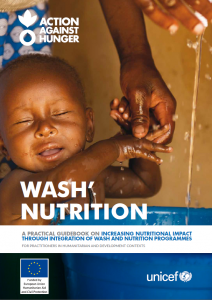
A practical guidebook on increasing nutritional impact through integration of WASH and Nutrition programmes. It is meant for practitioners in humanitarian and development contexts.
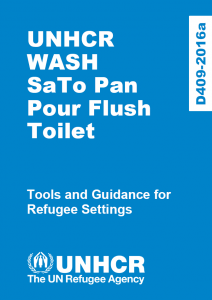
This document contains materials to help UNHCR and WASH actors build post pour flush household toilet and bathing units using the plastic SaTo Pan pour flush pan.
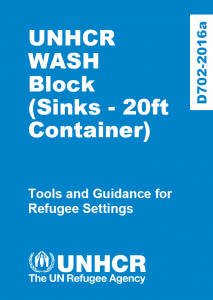
This document contains materials to help UNHCR and WASH actors convert 20ft shipping containers into WASH Blocks (14 sinks) with drainage.
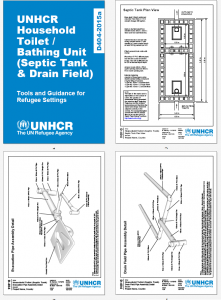
This document contains materials to help UNHCR and WASH actors build post emergency household pour flush toilet and bathing units with septic tanks and drain fields in refugee settings.
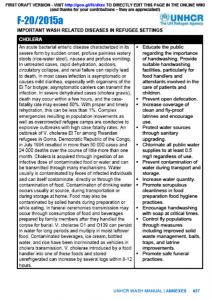
This document provides a quick summary of the most important WASH related diseases for refugee settings and includes a list of recommended control strategies.
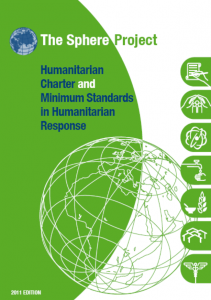
The Sphere Handbook is one of the most widely known and internationally recognized sets of common principles and universal minimum standards for the delivery of quality humanitarian response.
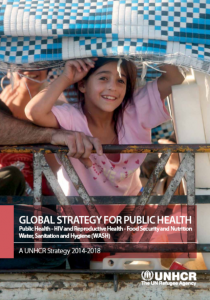
This document describes UNHCR’s global strategy for public health through a set of guiding principles and strategic approaches including protection; age, gender and diversity; equity; access; sustainability; community empowerment; appropriateness and reliability; partnerships and coordination; capacity building; communication and advocacy; integrated approaches; measurement and monitoring; and innovation. The document describes strategic objectives and enabling actions per sub-sector (Public Health, HIV and Reproductive Health, Food Security and Nutrition, and WASH).
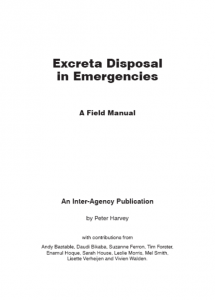
The purpose of the manual is to provide practical guidance on how to select, design, construct and maintain appropriate excreta disposal systems in emergency situations. Relevant situations include natural disasters, relief for refugees and Internally Displaced Persons (IDPs), and complex emergencies, focusing on rural and peri-urban areas. The manual presents a process, which can be followed to assess the current excreta disposal needs and priorities, and to design an appropriate programme to respond to those needs. It can also be used to select appropriate excreta disposal technologies, systems, and hygiene promotion interventions. The manual provides guidance on how to plan, design and construct systems, and how to maintain and promote appropriate use of those systems.